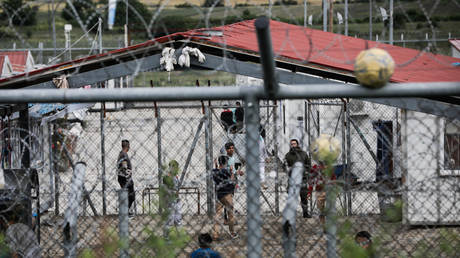
Nations have been warned to take back their citizens or face restrictions on visa issuance
Countries that refuse to accept their nationals after they are turned away from the EU will face visa restrictions, the bloc’s interior ministers warned this week. They urged the European Commission to take action as illegal immigration to the EU is at its highest level since 2016.
Support for restricting the number of visas granted to “non-cooperative” nations is “strong” among EU member states, Swedish Minister for Migration Maria Malmer Stenergard claimed after a meeting of interior ministers on Thursday.
“We see irregular arrivals increasing… Returning those who are denied asylum to Europe is a very important issue,” Stenergard said. “The current level [of returned migrants]is not acceptable.”
Just 21% of the 340,000 illegal immigrants refused asylum in 2021 were returned to their countries of origin, according to Eurostat data referenced in the meeting.
“If the political and diplomatic efforts [to improve cooperation with third countries]do not produce the expected results, the Member States call on the Commission to come back with proposals on visa restrictions,” the Swedish minister continued.
European Commission President Ursula von der Leyen agreed that there is a need to “intensify” the return of illegal migrants, calling for a “pilot project” that would bounce failed asylum seekers back from the bloc’s external borders with “immediate returns.”
The EU should agree on a list of “safe” countries where returns are unlikely to put migrants at risk, von der Leyen suggested, also recommending agreements with nations including Bangladesh, Egypt, Pakistan, Morocco, Tunisia, and Nigeria in order to “prevent departures” in the first place and “improve returns” where necessary.
While the EU previously agreed to restrict visas to countries they considered uncooperative on accepting returned nationals, the only country thus punished so far has been Gambia, whose citizens can no longer obtain multiple-entry visas to the EU and must wait longer for those papers. The European Commission has proposed similar penalties for Iraq, Senegal, and Bangladesh, but disagreements among member countries have so far prevented agreement on whether or how to punish anyone else, according to Reuters.
EU countries recorded over 330,000 illegal entry attempts last year, border control agency Frontex reported – the most since 2016, and a figure that does not include legal asylum applicants or Ukrainian refugees. More than 80% of these were adult men.




